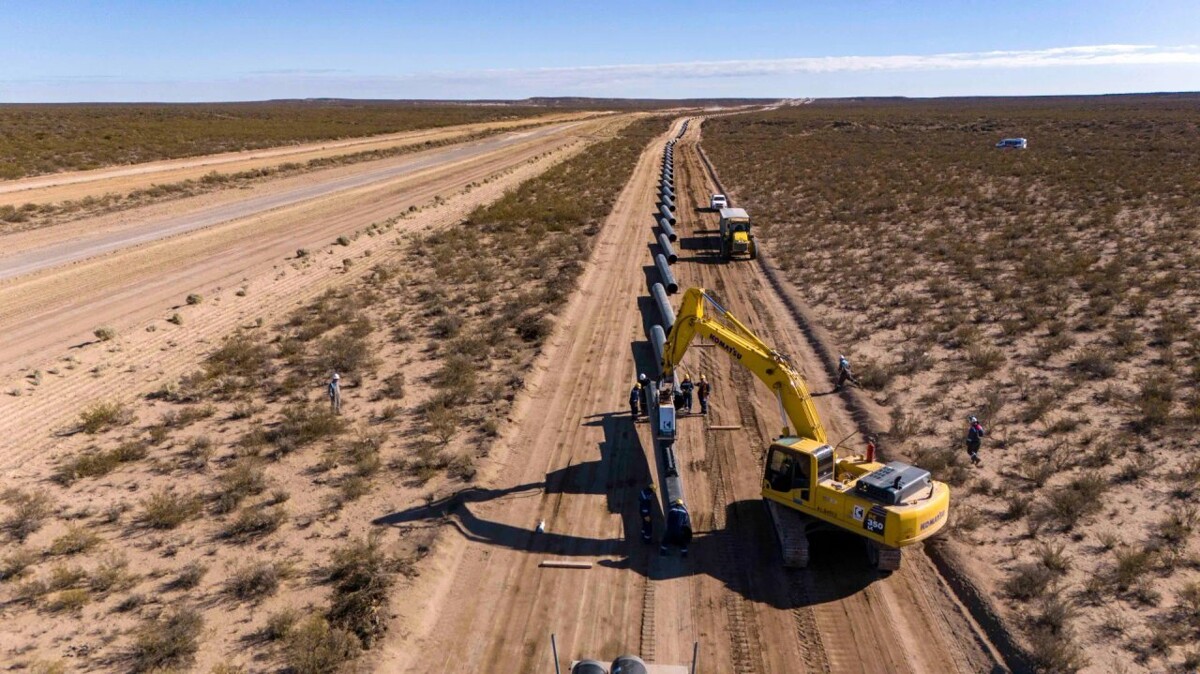
The province of Río Negro is positioned as a key player in hydrocarbon exports, ensuring that this activity is carried out sustainably and responsibly. With the installation of the first pipes underway and the beginning of the second phase scheduled for the first half of 2025, the pipeline is projected to generate up to 20 billion dollars in annual exports for Argentina, becoming a fundamental pillar for the energy and economic development of the country.
During 2024, the Government of Río Negro achieved the approval of two historic agreements within the framework of the extension of hydrocarbon concessions, adding two more at the beginning of this year. These agreements, unanimously supported by the Provincial Legislature, foster investments and strengthen energy production in strategic areas such as Estación Fernández Oro (EFO) and other places with energy potential.
Considered of utmost importance for national energy development, the project is currently underway. The construction of a terminal in Punta Colorada, equipped with single-point moorings for large ships, will help reduce logistics costs and position Río Negro as a strategic hub for oil exports in South America.
Among the latest developments, YPF has established an alliance with Pan American Energy, Vista Energy, Pampa Energía, Chevron Argentina, Pluspetrol, and Shell Argentina to finance and build the pipeline, while preliminary work has begun for the second phase intended to transport crude oil to Punta Colorada.
"We have reinforced our monitoring capabilities in midstream activities, ensuring that environmental and safety standards are met from the beginning," emphasized the Secretary of Energy and Environment, Andrea Confini. The completion of the first phase connecting the Loma Campana area in Neuquén with the Allen Pumping Station in Río Negro is ongoing. The companies initially committed to a capacity of 275,000 barrels per day, with the possibility of reaching an additional 230,000 barrels.
Additionally, VMOS, the corporation responsible for operating the pipeline, has been registered in the Large Investment Incentives Regime (RIGI), marking a milestone in promoting energy infrastructure projects in Argentina. Confini highlighted Río Negro's pioneering role in adhering to this tool, which will enable the consolidation of such investments, emphasizing the active participation of the Provincial State in overseeing the works.













